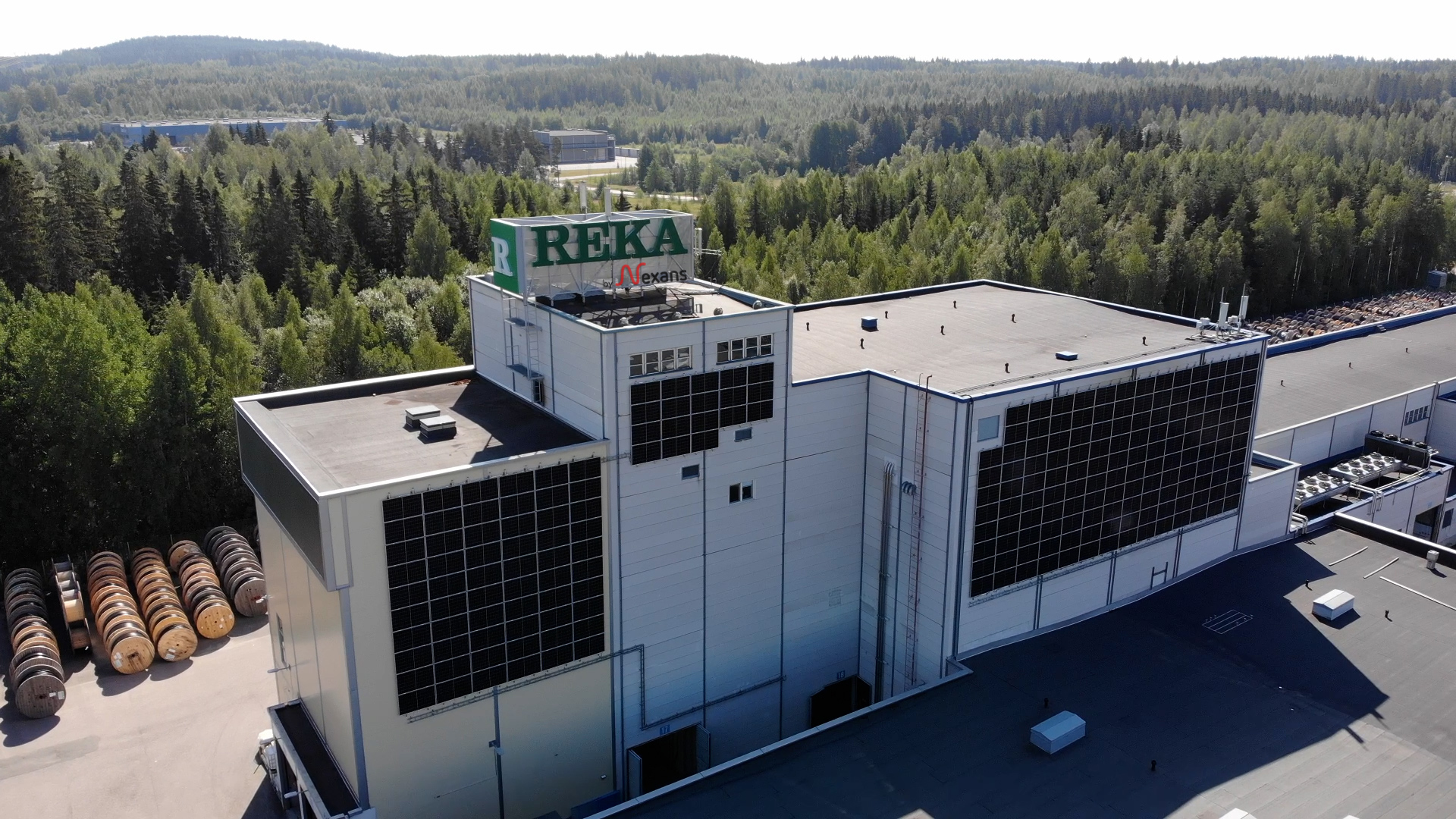Aiming for PVC-free and more fire-safe future: Reka Cables encourages authorities to tighten requirements

Reka Cables aims to promote fire safety by removing all cables containing PVC plastic from its product range. The new flame-retardant products are halogen-free and more fire-safe, and the company hopes to bring about a change with the result of eliminating the use of PVC cables in buildings.
“Such a requirement would have a significant impact on fire safety in homes, schools, public and commercial buildings, as well as in industry and data centres,” says Anne Tillgren, Production Director at Reka Cables. Flame-retardant, halogen-free Dca-class cables produce less heat and smoke, enhancing visibility and facilitating evacuation in the event of a fire.
The requirement for flame-retardant halogen-free cables would also reduce damage to buildings and movable property, as these cables produce less corrosive gases that cause significant damage to property.
Combustion gases hazardous to health
Most fire deaths are caused by inhalation of toxic combustion gases.* The Ministry of Social Affairs and Health’s Turvallisesti kaiken ikää (Safely at all ages) programme aims to reduce fire deaths and injuries by at least 25% by the end of 2030.* Reka Cables believes that the removal of PVC cables from the market can contribute to this goal. “Once a fire breaks out, there is often only a few minutes to escape. PVC cables produce black, toxic smoke that blocks visibility, is highly irritating and makes evacuation and rescue difficult,” says Tillgren.
Halogen-free cables help reduce property damage
According to the Finnish Rescue Services’ Pocket Statistics**, property damage in fires has increased in recent years. In 2023, damage to buildings and movable property totalled EUR 182 million in Finland. The use of halogen-free cables can reduce this damage. PVC cables release acid gases in a fire, which can cause significant damage to buildings and equipment. “Halogen-free cables reduce property damage and speed up repairs and reuse of the building, which also reduces costs,” says Tillgren.
Investment in safety
Starting PVC-free production will require investments from Reka Cables, but the company considers the change important for the safety of society. “The reform is a significant improvement for the safety of all people—not just those working in the industry. Halogen-free cables make it possible to reduce the risks in case of fire,” says Tillgren.
The campaign for safer halogen-free cables, launched in summer 2024, has attracted interest among installers, and Reka Cables hopes the topic will continue to receive widespread attention. “The best-selling installation cables are still MMJ cables containing PVC,” says Tapio Laitinen, Sales Director at Reka Cables.
The company believes that wholesalers also support the change. “Wholesalers want to offer their customers safer and more sustainable products. In addition, storage is simplified when wholesalers can remove the entire range of PVC cables,” says Laitinen.
EQQ is a halogen-free installation cable – new products coming to market
A few years ago, Reka Cables launched the halogen-free EQQ installation cable, which has been tested and approved for CPR class Dca-s2,d2,a2. EQQ will replace MMJ cables containing PVC.
In the near future, Reka Cables will be launching new Dca-class halogen-free cables in the Helppo series, designed with greater working comfort in mind. “Helppo” is Finnish and translates to “easy” in English.
“The new EQQ Helppo installation cable is not oly easy to strip but also thin and small in diameter, making it easier to handle and transport,” says Mika Mutru, R&D Director at Reka Cables.
The company hopes that the new halogen-free cables will also render the term MMJ obsolete. “MMJ cables contain harmful PVC, so for safety reasons it would be important that the terms are also updated as we introduce new, safer solutions,” says Sanna Jaakkola, Marketing and Communications Manager at Reka Cables.
The Nordic countries as pioneers
In Sweden and Denmark, PVC cables are no longer used as construction cables, and now Reka Cables, part of the Nexans Group, wants to bring about the same change in Finland. Nexans Norway has also announced its commitment to remove PVC from all cables, and Reka Cables hopes that the entire industry will join in this change.
Reka Cables and Nexans see stricter fire safety requirements as necessary steps towards a more sustainable and safer future where PVC is no longer used in cables.
For more information, please contact:
Anne Tillgren, Production Director
Mika Mutru, R&D Director
The following materials are in Finnish: